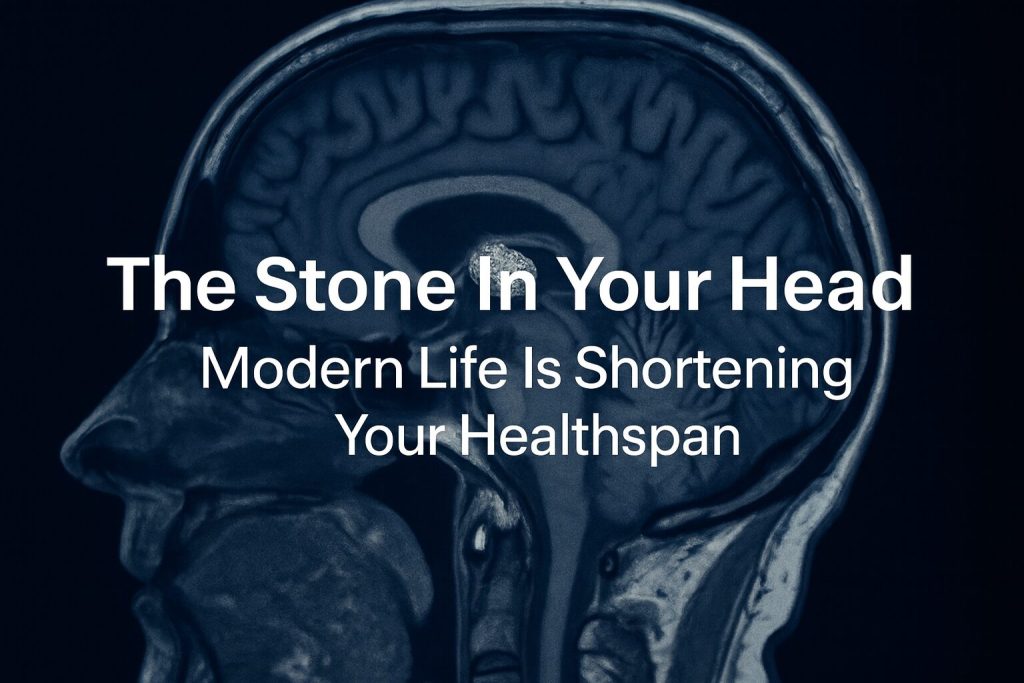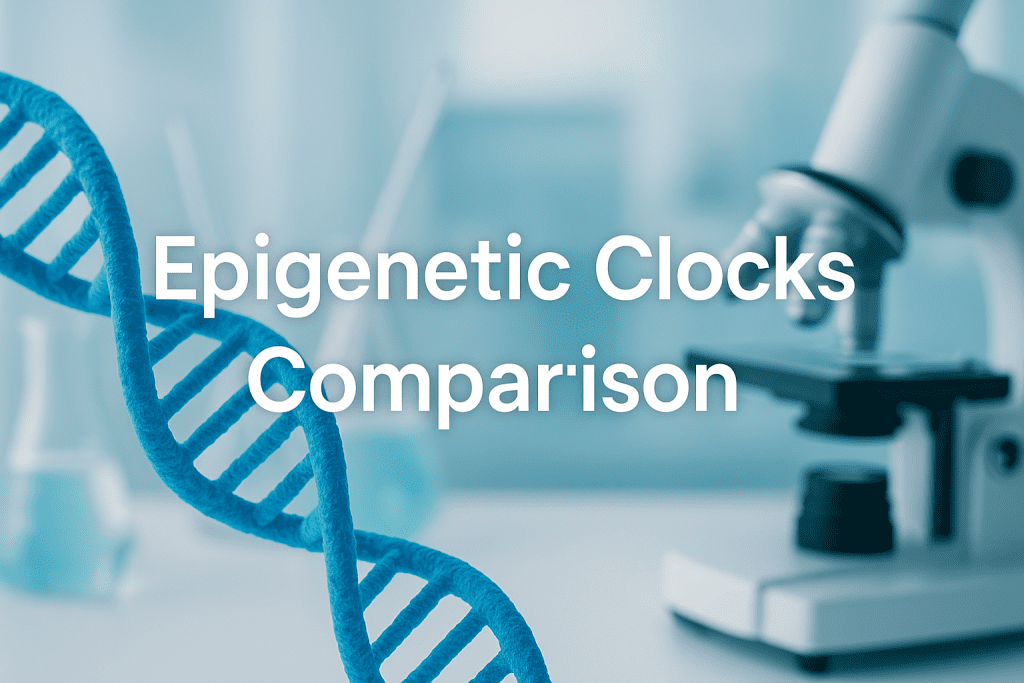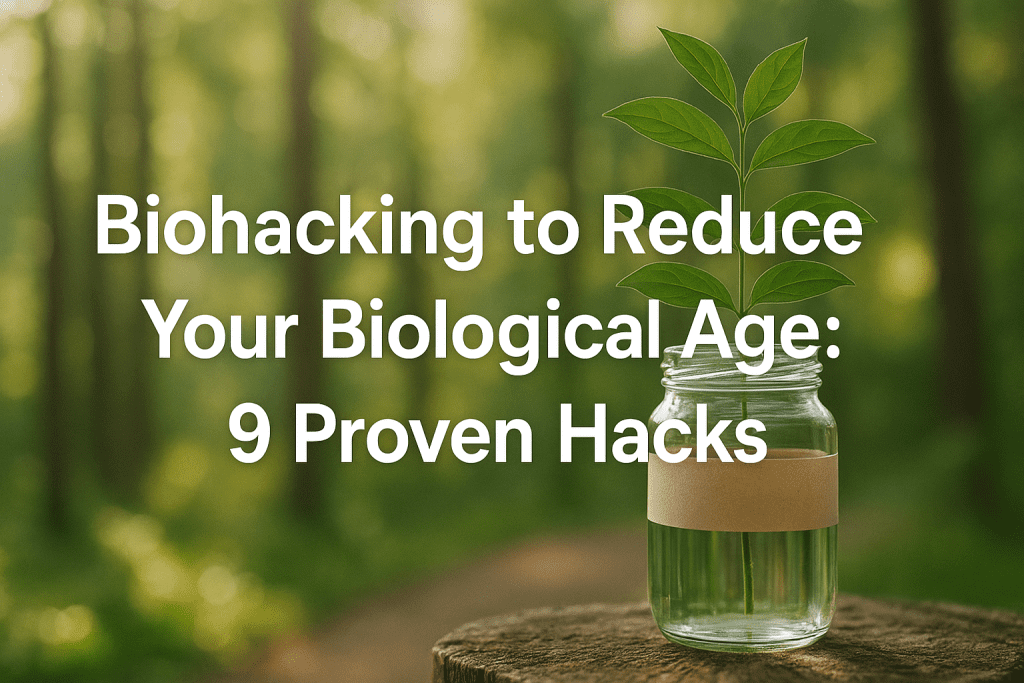
The pineal gland is small but plays a huge role in how well you age. It controls melatonin, a hormone that not only regulates your sleep but also supports DNA repair, mitochondrial health, and antioxidant defenses. Protecting it can help keep your repair cycles, hormones, and cells working well into later years.
What is the pineal gland and why is it important for longevity?
It’s a rice-sized gland that produces melatonin, a key “longevity hormone.” Most people know melatonin as the sleep hormone, but it does much more. It’s one of the strongest antioxidants your body makes, helping reduce oxidative stress, calm inflammation, and regulate over 500 genes linked to cell repair and defense. It also supports mitochondrial function, which keeps your cells energized.
When melatonin stays low for long periods, your risk of neurodegeneration, heart disease, metabolic disorders, and cancer rises. That’s why researchers now call it not just a sleep hormone, but a longevity hormone.
How common is pineal gland calcification?
It affects most adults and it’s starting younger. A 2023 review found calcification in about 60% of middle-aged adults and up to 70% of seniors. Worryingly, it’s now being detected in teenagers and even children.
Calcification happens when calcium and sometimes fluoride builds up in the gland, lowering melatonin output. Because the pineal gland sits outside the blood brain barrier, it’s more exposed to toxins and environmental stressors than most brain structures.
What are the main threats to your pineal gland’s health?
Five lifestyle and environmental factors do most of the damage
📱 Blue light at night: Suppresses melatonin release. Harvard research shows tablet use before bed can cut melatonin by 23% and delay sleep. Long term, this disrupts circadian rhythm and is linked to obesity, depression, heart disease, and shorter lifespan.
🦷 Fluoride build up: The pineal gland concentrates fluoride more than any other soft tissue, contributing to calcification and reduced melatonin.
📡 EMF exposure: Wireless devices may lower melatonin via oxidative stress and altered calcium signaling. A Swiss study found melatonin levels improved after a nearby transmitter was shut down.
🌞 Lack of morning light: Without morning sun exposure, your body’s internal clock delays nighttime melatonin release, harming hormone balance and metabolic health.
🥗 Low magnesium: Magnesium helps regulate calcium. Low levels may promote calcification and are linked to poor sleep, high stress, and oxidative damage.
What happens if you ignore pineal gland health?
You lose more than just good sleep. Low melatonin and pineal calcification can mean less restorative deep sleep, more oxidative damage, higher inflammation, and weaker immunity. Over time, this can shrink brain volume, weaken your heart and metabolism, and accelerate aging.

How can you protect and restore pineal function?
Simple daily habits can help
🌤 Strengthen your light cycle: Get 15 to 20 minutes of outdoor light within 30 minutes of waking, avoid sunglasses early in the day, and dim lights/screens after sunset.
🚰 Reduce fluoride intake: Use reverse osmosis or activated alumina filters, pick fluoride free toothpaste, and limit drinks made with fluoridated tap water.
🕶 Control bedroom light pollution: Use blackout curtains, cover LEDs, and keep the room cool.
📶 Limit EMFs at night: Keep your phone out of the bedroom or on airplane mode, and turn off Wi Fi while sleeping.
🥗 Support mineral balance: Take magnesium glycinate or threonate (200–400 mg before bed) and add vitamin K2 from foods like natto or gouda to help keep calcium out of soft tissues.
🔥 Detox through sweating: Use a sauna, exercise, or hot baths. Infrared sauna sessions at 50–60°C for 20–30 minutes can support toxin removal and better sleep.
🧪 Use melatonin wisely: For circadian reset, try 0.3–1 mg 60–90 minutes before bed for short periods. Avoid daily high doses unless advised by a clinician.
Can you track the benefits of protecting your pineal gland?
Yes with a biological age test. If you want proof your efforts are working, test your biological age regularly. Tracking changes can show whether your healthspan is improving alongside your sleep quality. See our biological age test kit comparison for the most accurate options.
Why healthy aging is all about rhythm
Your body works on precise timing, knowing when to repair and when to defend. The pineal gland is the master switch for melatonin, one of your body’s most important time signals. Protecting it helps safeguard not just your sleep, but the quality of the decades ahead.
FAQ About the Pineal Gland and Healthy Aging
How does melatonin affect biological age?
Melatonin helps control oxidative stress, inflammation, and mitochondrial health, all of which influence how quickly your body ages. Lower melatonin over time can speed up biological aging.
What causes pineal gland calcification the most?
The biggest contributors are fluoride build up, chronic blue light exposure at night, and low magnesium levels. These factors reduce melatonin and disrupt circadian rhythm.
Can you reverse pineal gland calcification naturally?
While complete reversal is uncertain, reducing fluoride intake, improving mineral balance, and supporting detoxification through sweating may improve gland function.
Does the pineal gland affect hormones other than melatonin?
Yes. It influences reproductive hormones, stress response, and some aspects of immune function, making it important for overall hormonal balance.
Is melatonin supplementation safe for long term use?
Low doses for short term circadian reset are generally considered safe, but high doses or continuous use should be discussed with a healthcare provider.
How can I measure the impact of pineal health habits?
You can monitor sleep quality, mood, and energy, but the most objective method is tracking your biological age using a validated epigenetic test.
Sources
- Prevalence of Pineal Gland Calcification: Systematic Review and Meta-Analysis – https://doi.org/10.1186/s13643-023-02205-5
- Pineal Calcification, Melatonin Production, Aging, Associated Health Consequences and Rejuvenation of the Pineal Gland – https://www.mdpi.com/1420-3049/23/2/301
- Fluoride and Pineal Gland – https://doi.org/10.3390/app10082885
- GreenMedInfo: Fluoride Toxicity Database – https://greenmedinfo.com/toxic-ingredient/fluoride
- Melatonin: A Potential Shield Against Electromagnetic Waves – https://doi.org/10.2174/1570159X19666210609163946
- Magnesium Basics – https://doi.org/10.1093/ndtplus/sfr163



